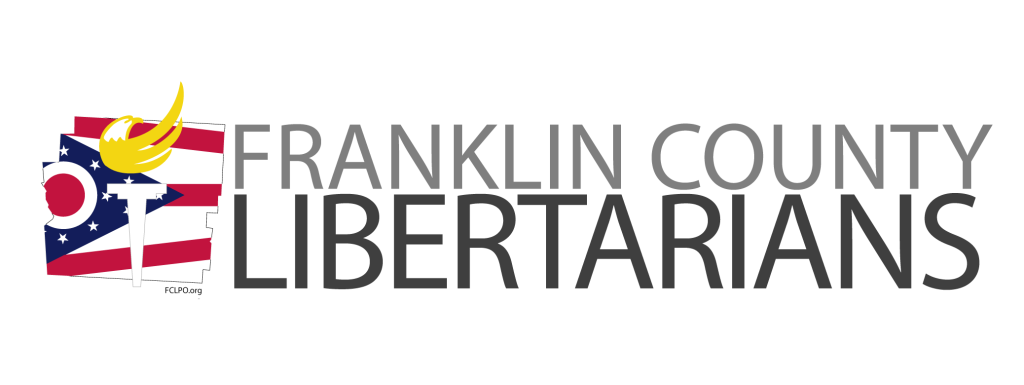The derailment of hazardous waste material in East Palestine is a story that will not go away. There are
many who wish it would. Pete Buttigieg, head of the US Department of Transportation, tried to brush it
off as “there are a thousand derailments a year” implying, why is this one special? Tom Zawistowski is
normally a pretty radical guy who airs a political podcast every Saturday. This time he takes, for him, an
unusual position. He states that it is important to support our institutions, without which our country
would disappear. He also contends that the people of East Palestine love their city. They don’t want to
have to abandon their houses. They don’t want to have to start a new life elsewhere. They don’t want
to see the reputation, home prices and economy of East Palestine damaged by politicizing the incident
and blowing it out of proportion. He doesn’t state all the institutions he is trying to protect but suggests
they are people like the mayor and first responders of East Palestine. The governor of Ohio naturally
has a similar position. He has said that the city is safe to live in and the water is safe to drink. Even the
President appears intent to ignore the disaster and hope people eventually move on as the problem gets
lost in the daily onslaught of news stories. I mean damn, there are wars to fight in eastern Europe! Of
course, the Norfolk Southern railroad officials want to assure the public that railroads are safe and
everything is under control.
Who else is trying to suppress the story? It was stated that the two largest shareholders of Norfolk
Southern are the Vanguard and BlackRock investment companies. Certainly it is in their best interest for
the stock not to take a hit, let alone the pension funds that have BlackRock and Vanguard in their
portfolios. There is a lot of money at stake. Vanguard and BlackRock have so far been left out of the
story but the very fact that they are not in the news may lead one to suspicion. These institutions
certainly have enough clout and experience at spinning positive PR. Could they be working behind the
scenes, giving guidance to the Norfolk Southern executives?
Are they right? Should we just move on?
No.
“1000 derailments a year” is not a reason to claim this story doesn’t matter. Quite the contrary. It is a
serious problem. It is in fact, more than 1,000 derailments a year. According to the U.S. Department of
Transportation Bureau of Transportation Statistics, there have been a total of 54,570 freight and
passenger train derailments, averaging 1,705 each year between 1990 and 2021.
On December 2nd, 2022, Biden signed legislation passed by Congress stopping railway workers from
going on strike and imposing contract provisions the rail workers had not agreed to. Out of 12 unions
representing about 115,000 rail workers, eight were in favor of the provisions. Four were not, but all 12
would strike in solidarity with the four holdouts. The sticking point with the other four was failure to
approve an increase in the number of days of paid sick leave. One of the four that was not happy was
the group that takes care of the tracks, the Brotherhood of Maintenance of Way Employees.
Another group of people will not let this story go away.
Sherrod Brown, Senator from Ohio, is an old school Democrat with a network of union support. He is up
for re-election in 2024 and has been keeping this incident front and center in public perception. It has
not been easy for Democrats to win in Ohio over the last few years, but this incident fits like hand in
glove for Brown’s brand of politics. He has been quoted frequently in the press and on television. “My
job is always to fight for the dignity of work, to fight for these workers, to fight for these communities,
to make sure this never happens again”, he says. He and fellow Ohio Senator, Republican J.D. Vance,
have been sponsoring legislation with those goals in mind.
There is a political blogger, a young part time journalist and bartender from West Virginia, who has been
reporting extensively on the East Palestine debacle. The name of his blog is John Russell from the
Holler. His world view is like that of Sherrod Brown. He comes across as a throwback Mother Jones
type progressive who supports unions and blue-collar workers.
Unsurprisingly, his take on the East Palestine train wreck is that it is a tale of corporate greed. His
railroad worker contacts are upset with Norfolk Southern for adopting a new management philosophy
known as Precision Scheduled Railroading, or PSR. PSR was pioneered at the Illinois Central Railroad by
a gentleman named E. Hunter Harrison when he became CEO in 1993. He turned the ICR so profitable
that it was acquired by Canadian National Railroad in 1998. Harrison implemented PSR at the CN
Railroad just as successfully, and then was recruited by Canadian Pacific, where he also implemented
PSR. He was again recruited by another Railroad, CSX, in March of 2017 where he implemented PSR
before his death 8 months later. The Norfolk Southern implemented their own version of PSR starting in
February of 2019.
The old railroad management depended on unit trains, hub and spoke operations and individual car
switching. Unit trains didn’t start moving until they were full. Hub and spoke operations meant trains
were waiting for connecting cars before they could move. Individual car switching was caused by the
philosophy that the more cars hooked to a train the better. This obviously slowed down operations in
switching yards.
PSR, on the other hand, is a simple concept similar the techniques implemented by Southwest Airlines to
revolutionize passenger air travel. Trains operate under strict schedules with point to point routing
networks. To maximize volume per train, all cars going from point to point were hooked in to the train,
regardless of type. (This is why the East Palestine wreck had fewer chemical tanker cars than required
to classify the train as hazardous). When sticking to the schedule became the first principle, other
management issues are simplified. Inventories of freight cars and locomotives were reduced and fewer
workers employed for a given level of traffic. Trains could be operated on fewer and fewer tracks with a
higher volume of trains each day. The result is vastly improved operating ratios. Norfolk Southern has
always been known as a profitable railroad, but their profitability was based on connections between
coal fields, power plants and steel mills. However, coal traffic has been declining over the last decades.
PSR provided Norfolk Southern a way to maintain their profitability, providing impressive profits to
shareholders, estimated to be $2 billion in 2022.
What commitment to safety has Norfolk Southern shown since PSR was instituted? Much has been
made of the fact that today’s trains can be a mile and a half long or even longer with only a two-person
crew. For most of the 20th century, freight train crews consisted of five men: a conductor, two
trainmen or brakemen, and engineer, and a fireman. Today, most road freights operate with just two
crew members, a conductor, and an engineer (www.trains.com/trn/train-basics/abcs-of-railroading/the-
people-who-work-on-trains). Surprisingly, this decision is not regulated by the government. Instead, it
is negotiated into union contracts.
The rail-men John Russell knows do not like PSR. A train crew operates on their own without direct
supervision for hundreds of miles. They must be able to handle a broad range of potential problems at
any point in time. Train crews represent a diverse set of skills and experience. For example, a significant
source of train derailments is when an engineer allows slack to develop between cars, which creates a
dangerous condition. Faulty rolling stock is another major cause of derailments, as are issues with the
track.
Remember, there are 12 unions representing rail workers representing a broad range of skills, from
running a train to maintaining track to maintaining operating equipment. Another important safety
concern is faulty running gear on a car. According to the NTSB report, the likely cause of the East
Palestine train derailment was a wheel bearing in overheat failure. Sensors showed the bearing
overheating nearly 30 miles west of the crash site. Surveillance video from a local resident showed the
bearing on fire before the crash. The responsibilities of the engineer and conductor include seeing and
reacting to faulty equipment before an accident. The NTSB has declared that accident was 100%
preventable. A properly run safety program must have a philosophy that all accidents are preventable.
Otherwise, what point is there to having safety supervisors? How was the scheduling for the East
Palestine train crew? Had they been worked to the point of exhaustion for such a demanding job? Was
it an experienced crew? What was their safety record? How effective was their training? How effective
was the maintenance procedure for the equipment on this train? Has the NTSB too soon ruled out
conditions of the track being a contributing factor?
There is a constant pressure from the railroad industry to reduce labor. Management that negotiates
the union contracts is also adamantly opposed to government regulation. Note this quote from the
American Association of Railroads (https://www.aar.org/article/freight-rail-crew-size-
regulations/#:~:text=No%20Safety%20Justification.), “Efforts to require at least two-person crews,
including via regulation, lack a safety justification; ignore the decades of safe and successful use of
single-person crews at some U.S. freight railroads and in passenger and freight rail systems throughout
the world; upend meaningful collective bargaining, and undermine the rail industry’s ability to compete
against less climate-friendly forms of transportation.” Somehow this demonstrative statement rings
hollow when we know there are thousands of derailments each year.
We know that railroads have been very profitable over the last few years. Profit and cost cutting go
hand in hand. Of course, there are tradeoffs to be considered. All of us in the Midwest are familiar with
tracks being torn up, the railroad ties being sold off as landscaping timbers and the steel being sold off
for scrap. The idea is to run more traffic on fewer tracks. Today’s railroads operate on thousands of
miles less track than they used to. Equipment is operated with less down time. Is Norfolk Southern
sacrificing safety for profit? Does the physical property the railroads are selling off belong strictly to
their stockholders, or does the public have a say in the in the disposition of property that is an essential
part of the foundation of our modern, industrial economy?
The East Palestine disaster is a symbol of something bigger, the de-industrialization of America. Some
have called our period of history “the end of the American Century”. In the Midwest, we are familiar
with manufacturing moving overseas. We have seen entire factories torn down and entire industries
disappear, the machines and parts boxed up in crates and loaded on ships destined for other countries.
It’s a story as old as American business. Buy a company where you see value in selling off pieces, while
running the rest of it into the ground.
So how was the hazardous response? Was it acceptable? In a word, no. Next month, we will compare
the proper hazardous response with the one that took place in East Palestine. We will consider the
implications from this incident and what they symbolize for our nation’s infrastructure as a whole, and
the ramifications to our country’s economic health.
Some references for this article:
www.trains.com/trn/train-basics/abcs-of-railroading/the-people-who-work-on-trains… Train Basics
ABCs Of Railroading The people who work on trains
https://www.aar.org/article/freight-rail-crew-size-regulations/#:~:text=No%20Safety%20Justification.
https://www.whas11.com/article/news/nation-world/ohio-train-derailment-timeline-east-palestine/95-0d89fb7e-c0f6-444e-ac54-c5d50aee39a4
John Stewart, At-Large Member, FCLPO




